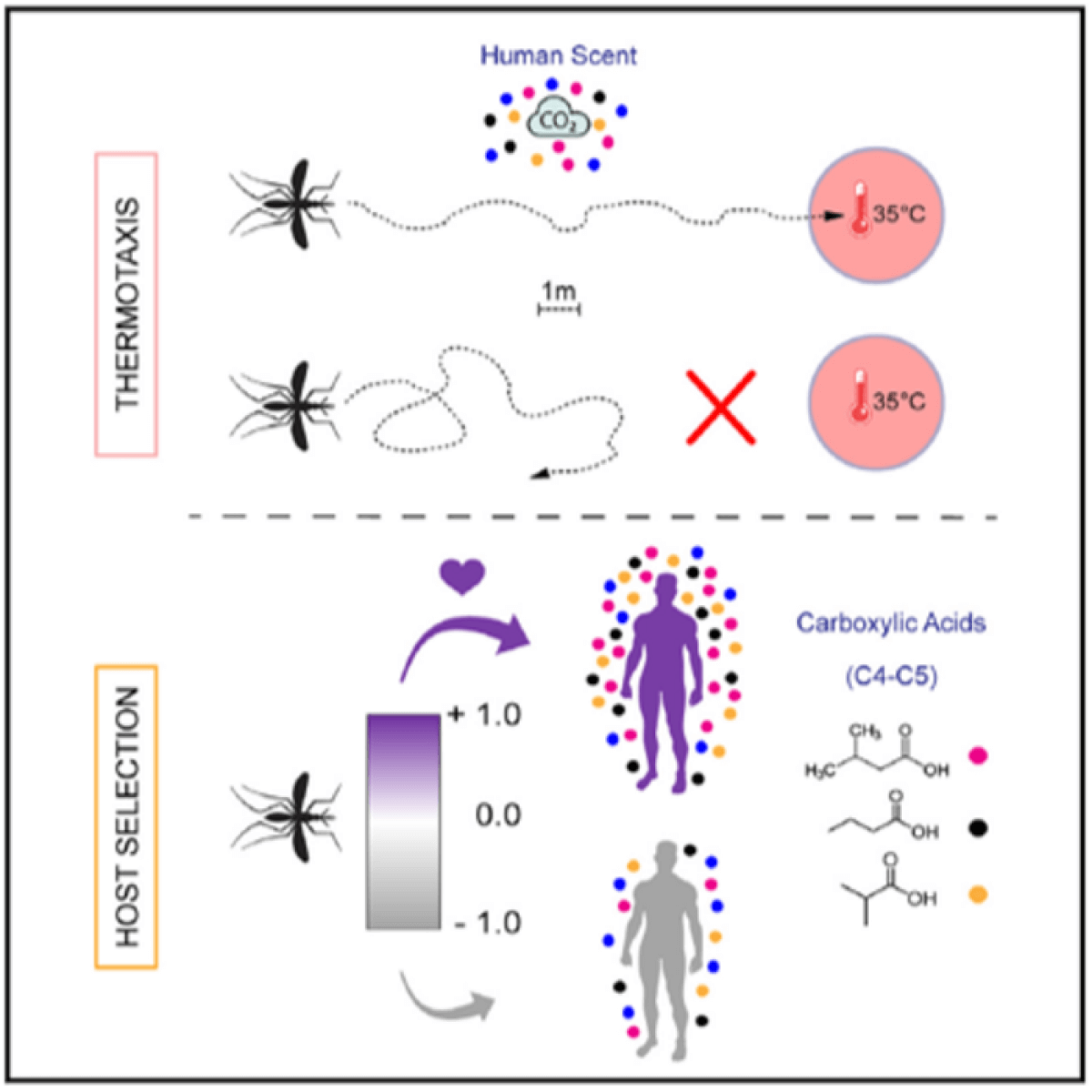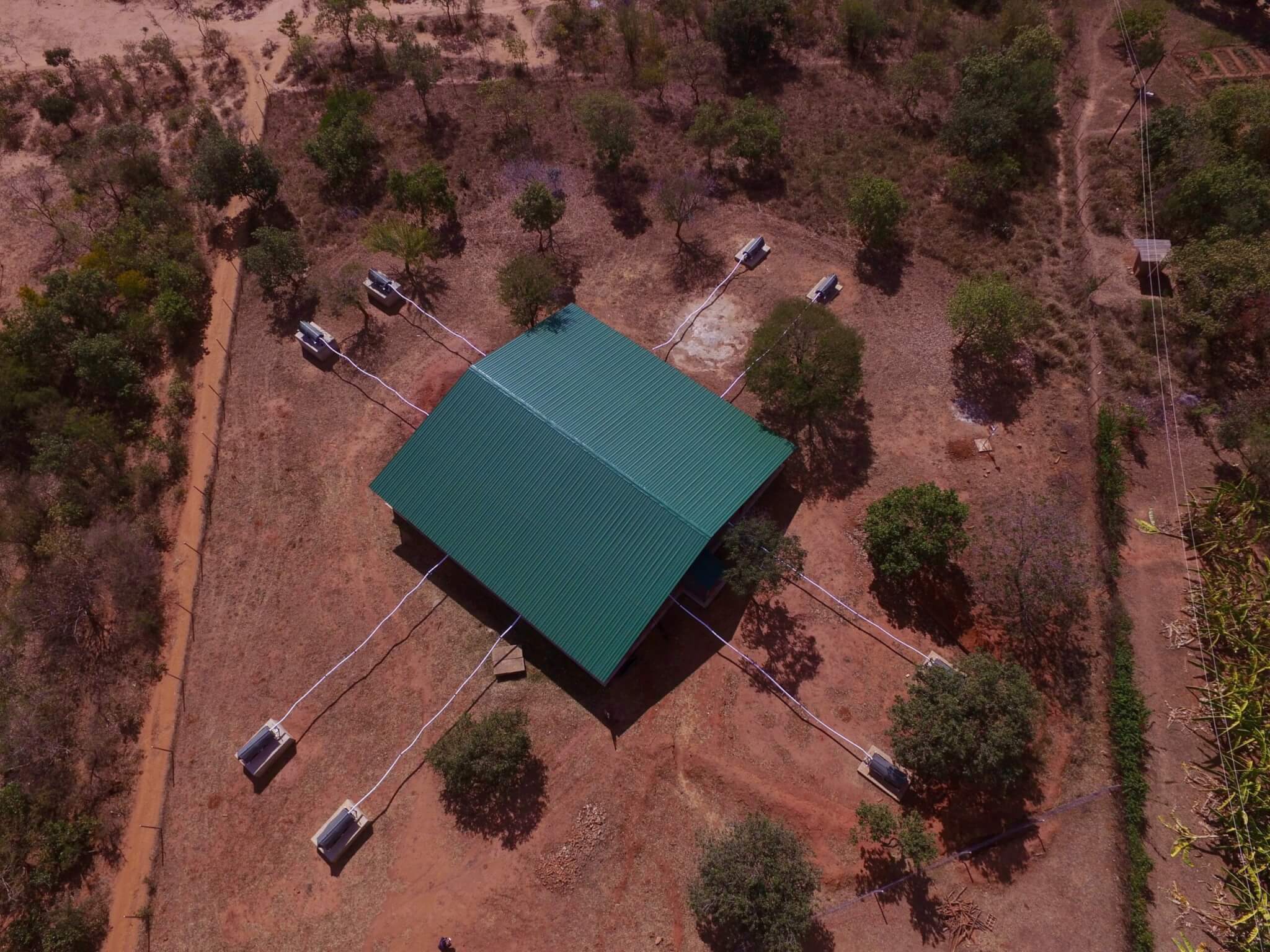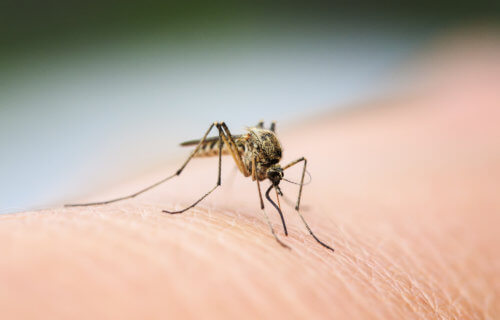BALTIMORE — Body odor may serve as a magnet for mosquitoes, a new study suggests. This revelation might explain why some individuals seem to attract these pesky insects more than others. Prior studies show that mosquitoes are attracted to human body odor, allowing them to detect us from up to 350 feet away. Once they locate a host, they leave an itchy bite, and, in some cases, can transmit potentially deadly diseases. However, the new findings reveal that even mosquitoes are picky about who they take a bite out of. So, what makes one person’s skin more “delicious” than someone else’s?
The research, which centered on the African malaria mosquito species (Anopheles gambiae) took place in a testing area equivalent to the size of an ice rink in Zambia.
“This is the largest system to assess olfactory preference for any mosquito in the world. And it’s a very busy sensory environment for the mosquitoes,” says Dr. Diego Giraldo, the study’s lead author, in a media release.
The team from Johns Hopkins University released 200 hungry mosquitoes each night. They employed infrared motion cameras to observe how frequently the mosquitoes landed on evenly spaced pads heated to mimic the temperature of human skin, indicating their readiness to bite. Surprisingly, the mosquitoes were more attracted to body odor than to carbon dioxide, which is another mosquito attractant.
Further tests revealed mosquitoes are selective. The body odor of six volunteers sleeping in surrounding tents was directed onto the pads over six consecutive nights. This allowed the researchers to record the mosquitoes’ preferences and analyze airborne components of body odor from the tents.

“These mosquitoes typically hunt humans in the hours before and after midnight. We wanted to assess mosquito olfactory preferences during the peak period of activity when they’re out and about and active and also assess the odor from sleeping humans during that same time window,” explains Dr. Conor McMeniman, the senior author of the study.
The researchers found that certain individuals consistently attracted more mosquitoes than others. Interestingly, one volunteer, who had a markedly different body odor, consistently attracted very few mosquitoes. The study identified 40 chemicals that were emitted by all humans, albeit at different rates.
“It is probably a ratio-specific blend they are following,” says co-first author Dr. Stephanie Rankin-Turner. “We don’t really know yet exactly what aspect of skin secretions, microbial metabolites, or breath emissions are really driving this, but we are hoping we will be able to figure that out in the coming years.”
Individuals who attracted more mosquitoes consistently emitted more carboxylic acids produced by skin microbes. Conversely, the person who attracted fewer mosquitoes emitted fewer carboxylic acids but three times as much eucalyptol, a plant compound found in oils, herbs, and spices, which may be linked to dietary factors.

The researchers were astounded by the mosquitoes’ ability to locate and choose potential human meals within such a large space.
“When you see something moved from a tiny laboratory space where the odors are right there, and the mosquitoes are still finding them in this big open space out in a field in Zambia, it really drives home just how powerful these mosquitoes are as host seekers,” concludes Dr. Rankin-Turner.
Scientists hope these findings contribute to the development of more effective repellants and traps. Interestingly, another recent study found that mosquitoes were repelled by soaps with a coconut scent.
The study is published in the journal Current Biology.
South West News Service writer Mark Waghorn contributed to this report.


I have floated most major rivers in Alaska. If I stayed 10 or 15 feet from the bank I saw
no Mosquitos. A Mosquito can’t smell a person 15 feet. “easy checked out”